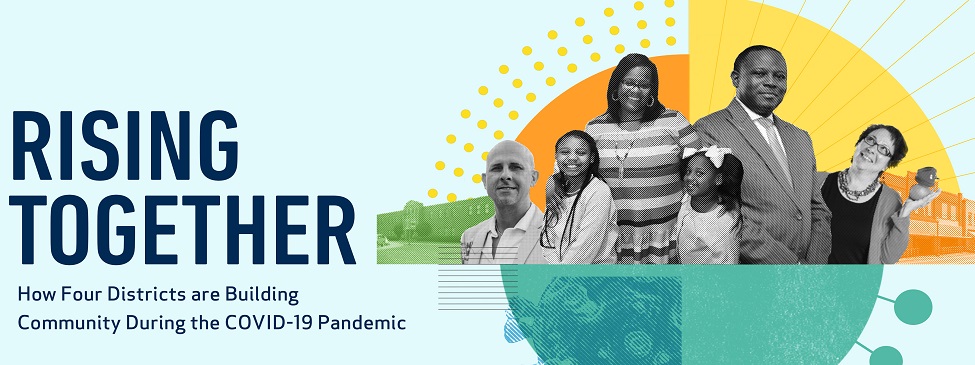Community, collaboration, and relationships have become more important than ever during the COVID-19 pandemic. Across the country, many school districts have embraced this opportunity to rethink how to engage with families and the surrounding community.
And this work matters. We know that family and community engagement is critical for lasting improvement in schools and school systems; it is linked to improved school readiness, higher grades, and increased likelihood of high school graduation, among other positive effects. With strong leadership that treats families, caregivers, and community organizations as full and authentic partners in student learning during the COVID-19 pandemic, school systems have found new ways to help ensure their children are well.
Since last summer, we've had the privilege to partner with four diverse school districts—Richland Parish, Louisiana; Hamilton County, Tennessee; Hartford, Connecticut; and Collier County, Florida—as they prioritized authentic community engagement. And today, we’re celebrating the work of our partners in Rising Together: How Four Districts are Building Community During the COVID-19 Pandemic, a report featuring work of each district and their communities in case studies that highlights their successes.
While each focused on different initiatives to address their unique challenges, all four districts grounded their work in TNTP’s four key pillars of community engagement: a shared vision, intentional culture and diversity, authentic collaboration, and 360-degree communication:
- Richland Parish organized a community engagement advisory panel—initially to help shape the district’s reopening plan, but which still convenes regularly to collaborate in support of the district and its newly formed parent center.
- Hamilton County launched virtual learning centers to bridge the digital divide, improve access to the district’s remote learning program, provide student services closer to where families live, and strengthen ties to community organizations.
- Hartford used a three-pronged approach to partnering with family and community members to rapidly improve access to devices and the internet, address food scarcity, and reengage missing students.
- Collier County executed a districtwide strategy for closing the digital divide, focusing on the unique needs of students identified as migrant.
We hope this report illustrates the power of family and community engagement—especially during this unique moment—and provides inspiration for school systems who want to make it a bigger priority. We’ll continue to highlight these districts’ progress in the coming months in this space. In the meantime, if you see any exciting community engagement practices in your district, please share them with us.








